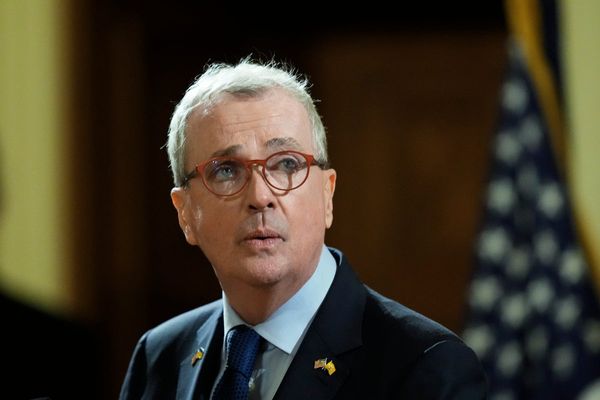
With the Republican presidential ticket led by Donald Trump and his running mate JD Vance recently drawing scrutiny over their answers to questions about how they would address the high cost of childcare in the US, the far-right Project 2025 manifesto offers some suggestions to them.
The plan calls for shifting funding for childcare to in-home family care because it claims children who go to childcare are more likely to suffer from anxiety, depression and neglect.
Project 2025, the Heritage Foundation’s wish-list of policies for a second Trump presidency if he wins November’s election, was written by a number of supporters as well as officials who previously served under the former president. And it calls to defund childcare.
“Prioritize funding for home-based childcare, not universal day care,” the Project 2025 text states. Without evidence, it adds: “Concurrently, children who spend significant time in day care experience higher rates of anxiety, depression, and neglect as well as poor educational and developmental outcomes. Instead of providing universal day care, funding should go to parents either to offset the cost of staying home with a child or to pay for familial, in-home childcare.”
Project 2025 also claims that overtime pay requirements discourage employers from offering benefits such as childcare in a push to scale back overtime pay protections for workers.
Before losing re-election to Joe Biden in 2020, Trump proposed millions of dollars in cuts to federal programs that provide funds to lower childcare costs and cuts to early education programs.
Trump was recently asked how he plans to reduce the high costs of childcare in the US, with his response inciting criticism as he prepares to face Democratic vice-president Kamala Harris at the electoral polls on 5 November.
During a speech on Thursday at the Economic Club of New York, Trump responded to the question in garbled fashion, alluding to tariffs on foreign nations – and claiming the funds raised from enacting tariffs would cover childcare costs.
“I think when you talk about the kind of numbers that I’m talking about – that, because look, childcare is childcare, couldn’t – you know, there’s something – you have to have it in this country,” the former president said. “You have to have it. But when you talk about those numbers, compared to the kind of numbers that I’m talking about by taxing foreign nations at levels that they’re not used to.
“But they’ll get used to it very quickly. And it’s not going to stop them from doing business with us. But they’ll have a very substantial tax when they send product into our country. Those numbers are so much bigger than any numbers that we’re talking about, including childcare, that it’s going to take care.”
That reply – which some have dismissed as word salad – drew a sharp rebuke on Sunday from a guest on CNN’s State of the Union: the US secretary of transportation, Pete Buttigieg.
The Democrat and Harris supporter said “it wasn’t clear whether he even understood the question”.
Trump’s running mate, Vance, was asked a similar question on childcare recently. And the US senator from Ohio responded by claiming that grandparents and extended family should help out more to alleviate childcare costs.
“Parents or grandparents might not be able to help, but they might *want* to, and for those families federal policy should not be forcing one particular family model,” Vance said in a post on X in response to follow up criticisms to his answer.
In a 2021 thread on X, Vance called universal childcare a “a massive subsidy to the lifestyle preferences of the affluent over the preferences of the middle and working class”. Vance characterized universal day care as “class warfare against normal people”.
He also claimed in a 2021 podcast interview that professional women “choose a path to misery” by prioritizing their careers over having children. And Vance agreed with a podcast host in 2020 that “post-menopausal females” exist to help parents raise children.







